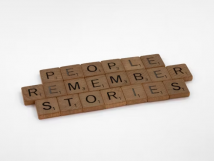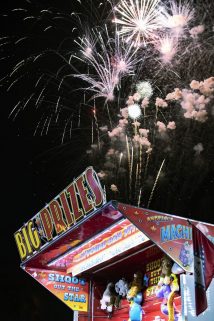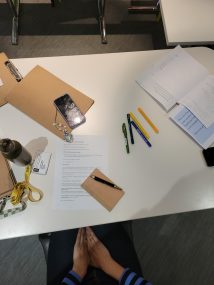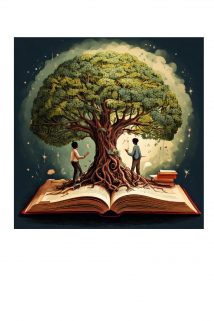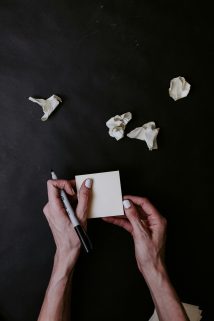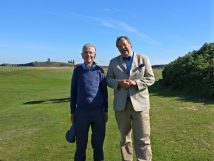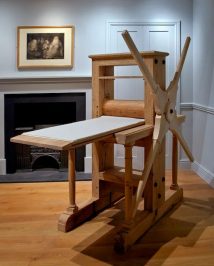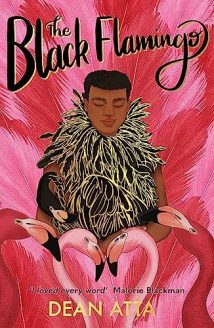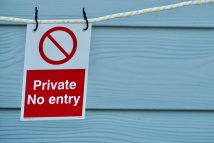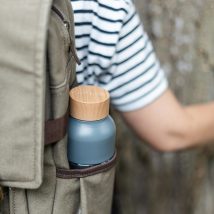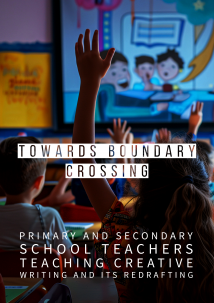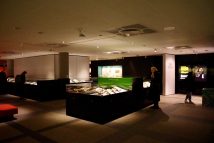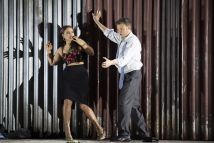Opinion
Here I comment on a wide range of issues from education to politics, the arts and more. I welcome lively and opinionated debate, so please leave your comments.
-
Reimagining the Future of Publishing: Five Observations on YA, Pedagogy, and Digital Literature
In this blog, I explore how contemporary YA literature acts as both a cultural mirror and a critical tool—reflecting the world young people live in while helping them make sense of it. Drawing on Suico et al.’s content analysis and Warner’s ideas about literature as ritual, I look at how YA fiction engages with themes like trauma, justice, and identity. I also consider the growing academic interest in YA and what this means for classrooms today. Ultimately, the blog reflects on how YA can offer not just stories, but space—for reflection, resistance, and hope.
-
The perils and pleasures of creative writing competitions and prizes: 5 key points
Prizes often symbolize external recognition, but what if I reimagined them as personal milestones—self-awarded markers of creativity, persistence, and growth? In this blog, I explore how literary prizes shape careers and confidence while offering five strategies to navigate competitions and create personal benchmarks. I introduce ‘internal prizes’—small yet meaningful ways to celebrate achievements, from finishing a tough draft to inspiring students. Drawing on insights from Kei Miller, Kristin Neff, and literary organizations, I invite you to rethink success and resilience. Prizes have power, but they don’t define your worth. Honour your journey—on your terms.
-
Only Connect: Creative Writing Comes Alive at the British Library
Only Connect: Creative Writing at the British Library was a vibrant and inspiring event that brought together twenty creative minds to explore the power of writing. Led by MA Creative Writing and Education students from Goldsmiths, participants engaged in a carousel of interactive workshops, each designed to spark creativity and deepen connections with the British Library’s collection. From crafting dialogues with historical figures to exploring the sensory world of smells and sounds, the event encouraged new ways of seeing, hearing, and feeling stories. Attendees left feeling inspired, with many calling for more in-depth sessions. Want to be part of the next one? Stay tuned for future creative writing events at www.francisgilbert.co.uk!
-
Creative writers and marketing: some thoughts and observations
Marketing isn’t just about selling books—it’s about finding the right readers, refining your creative process, and sharing your work with confidence. In this blog, we explore marketing in the publishing industry through the lens of the writer as a healer, teacher, researcher, and reflective practitioner.
-
Digital storytelling, translation and publishing
In an era of rapid digital transformation, storytelling, translation, and publishing are evolving in unprecedented ways. This article delves into the power of digital storytelling as a tool for inclusivity and multilingual expression while critically examining the role of AI in publishing and its potential biases. Drawing on Federico Ivanier’s novel, Never Tell Anyone Your Name (Ediciones Santillana, Montevideo, 2023), the piece explores the complexities of online identity and security, linking them to the responsibilities of writers as reflective practitioners. Emphasizing the importance of research, compassion, and self-care in writing, the article highlights how storytelling can be a means of healing and deep engagement with the world. Whether you’re an author, educator, or translator, this article provides valuable insights into navigating the modern literary landscape with awareness and integrity.
-
Using publishing tools to create thriving creative writing communities and cultures
Publishing isn’t just about books—it’s about shaping identity, community, and activism. This blog explores how the MA Creative Writing and Education at Goldsmiths uses publishing as a pedagogical tool, from internal dialogues between the Writer, Publisher, and Healer within us, to global projects like GlobalGRACE and Creative Voices, which use storytelling, theatre, and art to amplify marginalised voices. Discover how publishing extends beyond the page to empower writers, challenge dominant narratives, and foster creative communities. Read more about how publishing can be a process of transformation, resistance, and education.
-
How can writers benefit from learning about the Publishing Industry? Three key points and two questions
This blog post explores how creative writing teachers can learn about the publishing industry, and invites them to think about how it can used to develop their craft, their pedagogy, and generally help them learn and grow.
-
Learning to write, publish and teach, all in one go!
This blog explores how learning to write, publish and teach can help creative writers in multiple ways; they can hone the craft of their writing and pedagogy by using publishing as a pedagogical tool. A truly innovative approach…
-
In what ways can publishing support writers’ emotional needs?
This blog explores how publishing does and does not meet writers’ emotional needs. It introduces and explains the concept of emotional needs, and then shows how publishing might address these.
-
Towards a methodology for creative writing educators to use publishing to develop their writing and teaching
An article which discusses how creative writing educators might develop their own methodologies so that they can become fruitful creative writers who use publishing to develop the literary and pedagogical practices that work for them.
-
Four lessons I learnt from the late Canon Christopher Smith
A short article on the lessons I learnt from my late godfather, Christopher Smith.
-
The History of Publishing in 7 Objects
This article explores the Publishing Industry in 7 objects. It starts with the dawn of humanity to the present day.
-
Five key lessons about S.E. Hinton’s ‘The Outsiders’ and publishing
This article explores how and why outsiders, in the form of writers, readers and texts, came to shape the publishing industry, particularly Young Adult novels.
-
Will Labour’s policy of adding VAT to private school fees improve educational standards?
This blog post briefly explores the benefits of reducing spending upon private education and boosting spending on public education. It includes an interview I did on LBC’s Iain Dale programme, December 2024.
-
Entering Viola’s Room: four key lessons I’ve learnt from Punchdrunk’s Immersive Theatre
An article which explores 4 key things I’ve learnt from experiencing Punchdrunk’s Immersive Theatre events.
-
Four ways ‘It’s a Wonderful Life’ is therapeutic — and two ways it is not!
This blog post explores the therapeutic effects of ‘It’s a Wonderful Life’, and its non-therapeutic effects as well.
-
Two reasons why school trips go wrong
This blog explores the issues involved with school trips, considering the reasons why problems happen. It follows an interview I did about the matter on Talk TV, December 2024.
-
Towards boundary crossing: primary and secondary school teachers teaching creative writing and its redrafting
This academic article, written by Professor Tom Dobson and I, explores the research we did looking at primary and secondary school teachers attitudes towards creative writing and redrafting. This is a rare piece of research which compares primary and secondary school teachers’ approaches to teaching creative writing. It shows that primary school teachers can be formulaic in the way they teach creative writing, using product approaches. However, in secondary schools the picture is different: teachers, particularly those, who are writers themselves, give students more agency in redrafting and shaping their writing. This indicates how professional development should involve primary and secondary school teachers in dialogue with one another to cross boundaries of practice.
-
The British Library, research and creative writing
Creative writing can be used to help people engage with the British Library and its collection. MA students led members of the public through the Library, inviting creative responses to its archive and exhibitions.

